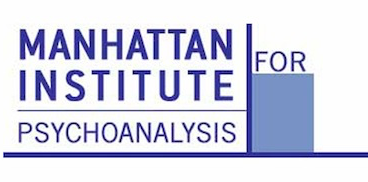Last March, in a climate of fear and uncertainty, we launched our special series on COVID-19, offering up the Analysis Now blog as a space for reflection and community. Now, six months later, much has changed—or has it? In a brief follow-up series, we asked our original contributors to comment on the question, where are we now?
Shock and Thaw: Six Months Into the Pandemic
by Sandra Green, LCSW-R, SEP, author of Thinking Analytically in the Time of COVID-19
Six months into living with the COVID-19 pandemic, I think we are moving past the initial shock brought about by the declaration of a global pandemic; the ensuing fear that death lurked in the very act of breathing the air; the order to quarantine; the sudden closure of businesses, cultural institutions, and international borders. Shock at witnessing the rapidly rising death toll and stunning revelation of our lack of preparedness to care for the sick. For some time there was nothing but this…
As shock thaws, we begin to move out of emergency/survival mode and to expand our perception outwards from inner terror. Having adapted well enough, albeit unhappily, we can gaze outwards with some security to assess the degree of relative vs absolute danger. In general, I think this is where we are now.
Formerly deserted streets have been dotted with outdoor café-goers for months; shops have reopened (although sadly, many are casualties of the pandemic); museums and soon restaurants are opening to limited capacity; and most schools are offering some in-person classes. Masks are de rigueur. We proceed with caution.
And still, there is thick uncertainty about a resurgence of the virus and the timing and viability of an eventual vaccine. And, of course, there is monumental anxiety concerning the political and social situation in our country. Still, I think there is an ongoing shift from a state of absolute frozen terror towards a more relative stance.
With the return of transitional space—facilitated by feeling safer—there comes a greater differentiation between externality and internality. We can better understand and evaluate our total situation as the grip of terror and shock loosens.
For example, people are asking themselves: how safe is it to visit with friends and family assuming reasonable precaution is taken? This is a shift from a position of absolute distancing. Questions related to trust—in authorities, others, and self—are salient in making these determinations.
Longings for real, live contact with others had to be suppressed early on in the name of good citizenship and self-preservation. One patient commented that while this effort initially felt “heroic,” it soon became depriving and sad. Frustration, sadness, anger, loneliness, even guilt for the wish to disobey the quarantine rules, are common.
The yearning for real, in-person contact (vs. video/phone) is a growing cry in my practice now. Of course, this need was always at the heart of therapy, but the mandatory remote working conditions and enforced social distancing dictated by the reality of the pandemic have framed this dimension of human experience in a novel context.
For some patients, the remote modality is felt to be a welcome relief from social anxiety; for others, there is no discernible difference; and for many, the painful unmet yearning for the actual presence of others (in contrast to the presence of absence) is undeniable. I recall that many years ago one patient, struggling to understand the absence of close relationships in her life, asked me, “Why do I need friends anyway?” This same person, in response to COVID, has organized a book group and an outdoor exercise club with eight of her friends.
To quote Joni Mitchell, “Don’t it always seem to go that you don’t know what you’ve got ’til it’s gone.”
Sandra L. Green, LCSW-R, SEP, is a certified psychoanalyst, licensed psychotherapist, and Somatic Experiencing Practitioner. She is executive director, clinical consultant, and faculty member of the Certificate Program in Trauma Studies at Manhattan Institute for Psychoanalysis, where she also teaches and supervises in the psychoanalytic training program. Sandra also teaches advanced seminars in trauma at ICP and PPSC in New York. She is in independent practice on Manhattan’s upper west side.
Learning From Each Other
by Troy Becker, Psy.D., author of Minding COVID-19: Re-establishing Communication Through Mentalizing
The importance of restoring and holding on to mentalizing (i.e., our ability to reflect on mental states of self and others) is even more challenged today than it was six months ago. However, this is not what I am most pulled to discuss today. While COVID-19 is an ever-present threat to us, there are even greater threats on the horizon. Our society is being faced with a crisis of knowledge and facts. The concepts of epistemic trust and epistemic vigilance are closely related to mentalizing and can be understood as our human instinct to divide individuals and groups into those who are reliable sources of information and those who are not. Where there is no epistemic trust there can be no social learning. It is easy to see how this type of trust is in short supply in our society as we become further and further divided politically and ideologically.
It would not be a stretch to say that about half the country is operating under completely different facts and beliefs than the other half. Moreover, the “epistemic highway” is under construction and closed until further notice. Simply put, we are currently living in a society where reliable sources of information have been deemed unreliable and learning has become impossible for large segments of our population. This applies to learning about the grave dangers of COVID-19, realities of racial oppression and trauma, ubiquity of disinformation, apocalyptic threat of climate change, and the list goes on. Our next steps must be to re-establish epistemic trust in our communities and find a way to restore communication, teaching, and learning. How is this done? Well, the technical answer is through accurate empathy, authentic attempts at taking in the other’s perspective, and patient efforts to provide teaching, education, and understanding. In practice, this is tricky business.
What makes matters more complex is that the engines of social media and targeted advertising further inoculate us against perspective-taking and perpetuate confirmation bias. The field of psychoanalysis has a unique role to play given these critical circumstances. A fundamental tenet of psychoanalytic theory is that when we close our minds down to information and knowledge we do so for a reason. The reason is unique for each individual, but we believe that through exploration, curiosity, and willingness to acknowledge hard truths about ourselves, our pasts, and our world we can come to a place of freedom and truth. It is my profound hope that we use can use psychoanalytic theories, research, and tools to help bridge the epistemic gap and create a true dialogue. Both conscious and unconscious motivations to remain closed to learning are powerful, but so is the human drive for freedom, connection, and truth.
Troy Becker, Psy.D., is an early career clinical psychologist out of Columbus, Ohio, where he specializes in working with individuals with eating disorders. He has additional training and professional interests in treating trauma and personality disorders. Troy is a graduate of the Wright State University School of Professional Psychology where he researched positive body image and completed clinical rotations in a wide range of settings including university mental health and opioid/substance use treatment.
If you enjoyed this post, we recommend:
#MeToo Enters the Consulting Room by Sandra Green, LCSW-R, SEP
Trauma-Specific Training: Now More Than Ever by Sandra Green, LCSW-R, SEP








1 Comment
Leave your reply.